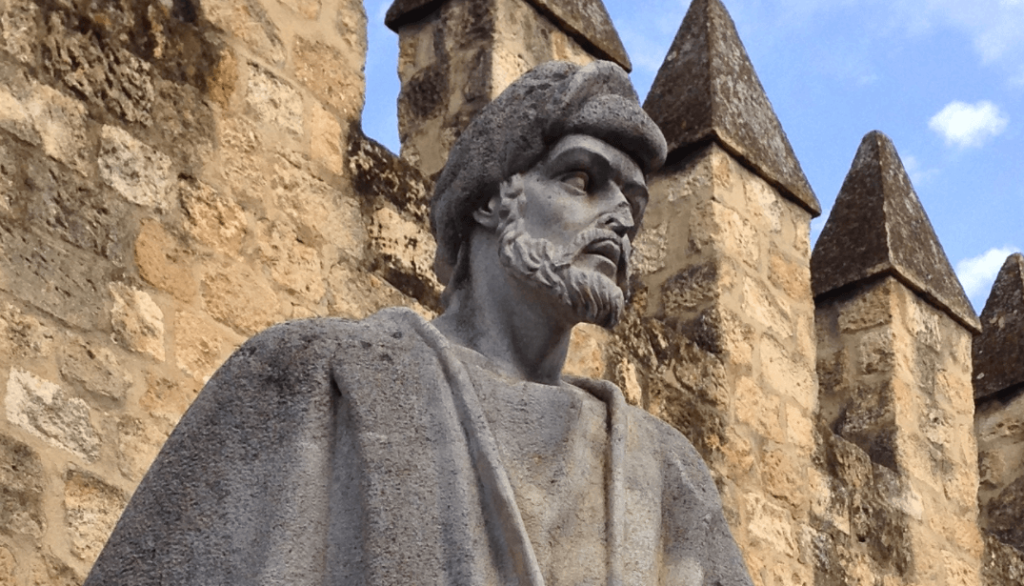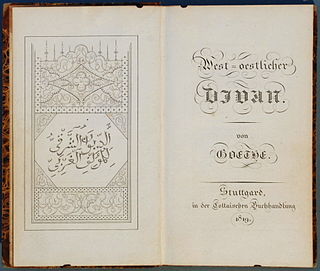
Why did Muslims fall behind while others progressed? We all know that Islam's image today is associated with Sharīʻa law and the implementation of terrifying, gory physical punishments. The academic student searches in vain for deep intellectual discussions on religion and the philosophy of religions among Muslims. He finds nothing worth noting. Contemporary Muslim discussions are entirely centered on the full or partial application of Sharīʻa or on questions of Islamic jurisprudence and law. In other words, orthopraxis dominates. By orthopraxis, we mean here the literal adherence to rituals and ceremonies and the reduction of all of the faith to just that – orthopraxis.
BY HASHEM SALEH
THIS CURRENT PREVAILING image, however, should not deceive us, as we labour under the illusion that the entire history of Islam was like this! In fact, during the golden age of Islam the disciplines of doctrinal theology were more important than jurisprudence or the execution of religious obligations. During the second and third hijrī centuries theology, the defence of the Islamic religion by means of rational and philosophical arguments, knew its true glory. Its heyday was in the era of the enlightened caliph al-Ma’mūn, who attempted to impose the Muʽtazila creed on everyone. But he made a mistake when he used force to carry that out, and we all know about the persecution of the Ḥanbalīs who rejected this.
We say this despite the fact that some of the Ḥanbalīs exaggerated and overstated this persecution for well-known reasons. Whatever the case may be, beginning with the era of al-Mutawakkil the battle finally ended with the victory of the Ḥanbalīs over the Muʽtazila whom they completely crushed. The scholars of hadith and jurisprudence then triumphed over the scholars of kalām, and this victory maintains to this day. After crushing the Mu’tazila, philosophy and philosophers were similarly crushed. In this way, the suicide of the mind in Islam took place, as the Pakistani reformer Fazlur Rahman expresses it, and for centuries and centuries darkness overcame the Islamic world.
Josef Van Ess adds a note to this: the image that holds that Islam was forced to choose between philosophy and religion, or between reason and faith, is an image that should be corrected. For it is not true. Why can one say that? Because Islam was able to reconcile both sides of the equation through Muʽtazilī theology. It is known that this theological discipline defended the Islamic belief using rational, philosophical arguments. The actual choice that lay before the Islamic societies at that time was one between the discipline of theology and the discipline of jurisprudence. What happened historically was that jurisprudence triumphed over theology following the victory of the Ḥanbalīs over the Muʽtazila, as we mentioned. And the victory still stands. For this reason, there is no longer a science of theology in Islam. Any rational thinking on religion disappeared from the Arab and Islamic arena nearly a thousand years ago, in the ages of decline where the doors of ijtihād were closed.
The disaster for the Islamic world was that Muʽtazilī theology was completely defeated
So why should one be amazed? Some may ask: Why did the Muslims fall behind while others progressed? The Muʽtazilī theology was able to reconcile science with faith, or reason with religion, but the disaster for the Islamic world was that Muʽtazilī theology was completely defeated and crushed by those who slavishly handed down what went before, and the jurisprudents and the Ḥanbalīs above all.
So at a time when Muslims have become preoccupied with comical fatwās such as breastfeeding adults, preventing women from driving, or watching the shaykh stars on satellite channels, or prohibiting music and the rest, we find other nations are producing and innovating in all fields of knowledge and scientific discovery. These last we find are primarily concerned with economic development, with improving the living conditions of its people and achieving scientific, medical and astronomical discoveries. So what is the reason for all of this alienation and estrangement of Muslims from the real world? To understand all of this, we need only compare their situation with other, similar situations in history.
It is said that while the enemy was at the gates, the priests of Byzantium were pondering on what was the gender of the angels. Were they male or female? Or, how many angels could pass through the eye of a needle? Or was the egg created before the chicken or vice versa, and so on. Their capital city Constantinople thus fell while they were preoccupied with such inconsequential nonsense. They had become mentally alienated and unaware of what was happening around them. That is how their story ended. Now, when people engage in sterile arguments of this kind, it is said that it they are engaging in ‘Byzantine’ arguments, arguments that are empty and meaningless.
It can be said that most of our discussions about religion are unfortunately of this kind. Instead of caring about the essence of faith, we concern ourselves with its outside surface. This is why other nations have overtaken us and left us lagging light years behind! The last thing we think about today are the moral values and the deep intellectual content of the great Arab-Islamic heritage that has now become smothered by piled up, tautologous padding.
Will the crown princes of Ṭaha Ḥusayn, Muṣṭafā ‘Abd al-Rāziq, and the leaders of the great Arab renaissance ever return?
At the outset of his book on The early period of Islamic theology Professor Josef Van Ess noted that:
the image of Islam in the Western media has become very negative and alienating. Islam has become the ‘absolute other’ for the West. And they – that is, Westerners – associate Islam with religious law or Sharīʻa, which seems to them to be incompatible with the principles of enlightened reason. But things were not always like this between Islam and the West. In the era of Ṭaha Ḥusayn, for example, the image of Islam was completely different from what it is now. In Egypt in 1938 he wrote in The Future of Culture that “everything demonstrates that there is no difference between the European spirit and the Eastern spirit. . . We are sure that there is no fundamental difference between the Europeans and ourselves”. In 1945, The Shaykh al-Azhar, Muṣṭafā ‘Abd al-Rāziq, repeated this idea. In the official speech he delivered at the inauguration of his post as supreme representative of the institution that embodies the spirit of Sharīʻa law, he stated: “I do not see any reason to justify the establishment of any contradiction between Islam and the West”.
The German researcher then comments on this, saying:[1]
At that time, these two great Egyptian intellectuals could count on the West’s support in line with Goethe’s statement that “it is no longer possible to separate East and West. They are one thing, not two different and contradictory things.”
However, like other romantic writers, when he said this phrase Goethe was thinking of poetry that combined the West and the East,[2] especially the Persian poetry of Hafez. This is unlike Ṭaha Ḥusayn and Muṣṭafā ‘Abd al-Rāziq, who were thinking mainly about philosophy. For it was philosophy that brought together East and West through Ibn Rushd and the rationalist philosophy that spread over both sides of the Mediterranean. In point of fact this Averroan philosophy spread to the other side, among the Europeans, more than it spread among its original owners, the Arabs and the Muslims. It is well known that throughout the long ages of decadence we fought against Ibn Rushd and the rest of the philosophers. And all of this was while the Europeans learned it, translated it and on its basis built their future renaissance. In this sense Ṭaha Ḥusayn is right when he said that the cultural interaction between Arabs and Europe was continuous over the centuries. At times they took from us and benefited from our culture and civilization, and at times we were the takers.
The ancient antagonistic standpoint on ‘ilm al-kalām and philosophy is the reason why extremist movements have swept across both the Arab and Islamic worlds
However, Josef Van Ess also alerted us to the following fact: that ‘ilm al-kalām came into existence before philosophy in the Arab-Islamic arena. This was the discussion of religion with other Muslims who held a different interpretation of it, or even with non-Muslims. It is true that theology had a reverential purpose in the beginning: that is, its aim was to venerate Islam, to demonstrate its superiority, and defend it against the adherents of other faiths. But this is only partly true. The ‘ilm al-kalām had other ambitions and goals. It aimed to provide a true explanation of the world – that is, a coherent rational explanation.
It is for this reason that the jurists accused it of being a kind of philosophy, and thus outside the realm of faith. For true philosophy, i.e. the philosophy of al-Kindī and his circle, as well as the philosophy of al-Fārābī and others, even of Ibn Rushd, had yet to appear. Unfortunately, ‘ilm al-kalām (or what Christians call ‘theology’) was quickly suppressed in the Islamic arena and finally became extinct following the miḥna (‘ordeal’)[3] of the Muʽtazilīs. It now no longer has a presence in any Sharīʻa faculties or religious institutes. In fact it is strictly forbidden by conservative circles in the Arab Islamic world, just as philosophy is. They believe that the ‘ilm al-fiqh is sufficient and that there is no need for ‘ilm al-kalām or philosophy. Conservatives are suspicious of them and think that they only corrupt true religion or serve to distance people from God. There is thus no need for them.

Suggested Reading
This is an ancient position firmly rooted in all parts of the Islamic world, past and present. It is the reason for the atrophy of reason and rationality in the Arab world, in contrast to the European world. It is also the reason for the dominance of the parroting mentality in schools and even universities, as well as the habit of memorizing by heart as opposed to engaging the mind, not to mention mental laziness, repetition and regurgitation.
The mentality of questioning-critiquing-objecting is well-nigh prohibited in Islamic education. Only a mentality of disengaged dependency, of unquestioned submissiveness and rote-memorization prevails. It is for this reason that there is no scientific creativity or philosophical innovation to be found among Arabs or Muslims in general. What is more, this ancient antagonistic standpoint on ‘ilm al-kalām and philosophy is the reason why extremist movements have swept across both the Arab and Islamic worlds. If the science of ‘ilm al-kalām had continued in the Islamic arena as it was during the golden age, if rational cogitation on religion had continued, we would not ended up at the near total blindness or darkness that we have achieved today.
All these negative factors must be taken into account if we want to understand the reason for the progress of Europeans and the regression of Muslims. This is the lesson that the great German orientalist Professor Josef van Ess bequeathed us.
[1] Josef Van Ess: Prémices de la théologie musulmane. Albin Michel, Paris. 2002. p.12.
[2] Goethe was the author of West–östlicher Divan (‘West–Eastern Diwan’) a collection of lyrical poems inspired by Hafez of Shiraz. Literary critics note that the phrase ‘west–eastern’ referred not only to an exchange between Germany and the Middle East, but also between Latin and Persian cultures, as well as the Christian and Muslim cultures. (Ed.)
[3] That is, the miḥnat khalq al-Qurʾān (‘ordeal regarding the createdness of the Qurʾān’) whereby religious scholars opposed to the official Muʽtazilī doctrine that there was a time when the Qurʾān did not exist, were persecuted. The attempt to impose this philosophical orthodoxy lasted for eighteen years (833–851 AD) until it was abandoned. (Ed.)
Main image: Statue of Ibn Rushd in Cordoba, Spain.
Read Part 1 of this essay here

